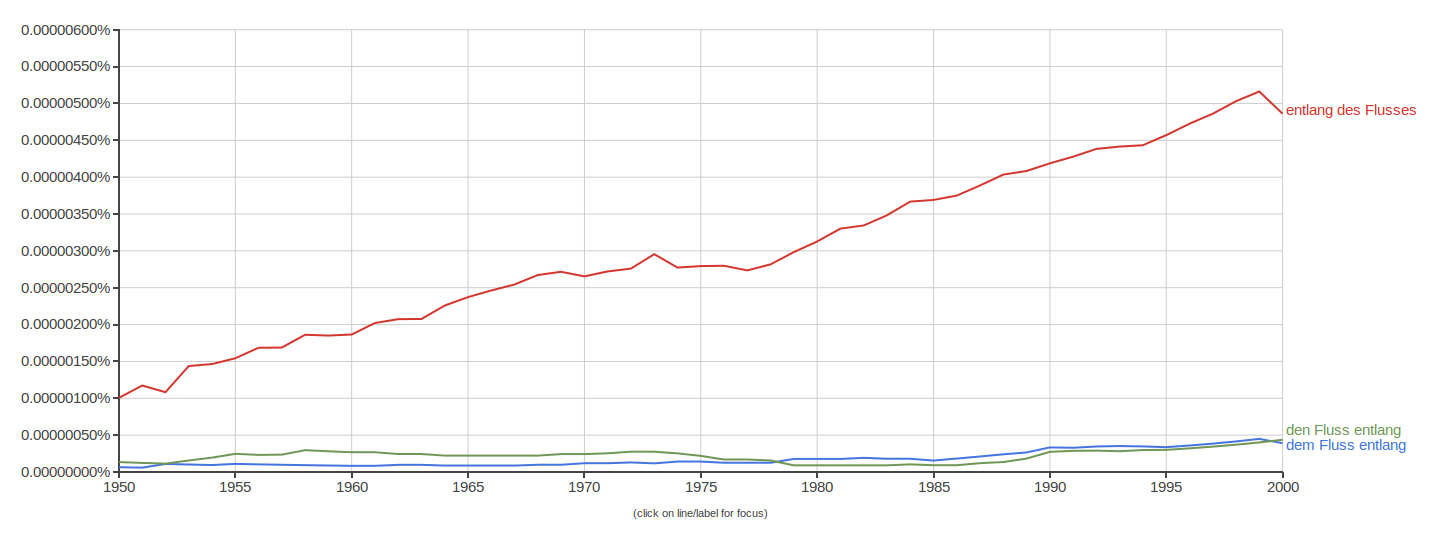I found that entlang could be followed by accusative but also by dative.
On Duden it reads in the grammar section:
Präposition; bei Nachstellung mit Akkusativ, selten (aber noch schweizerisch) mit Dativ; bei Voranstellung mit Genitiv, seltener mit Dativ, veraltet mit Akkusativ
I can´t understand which one of the cases would be the best.
Which one do you think is more common? Does it make any difference in the meaning or is it maybe that one sounds more old that the other? Is a case maybe more common in Germany and another in Austria?
In this example, what would you choose?
Ich fahre eine Zeit lang entlang der Münzgrabenstraße.
Ich fahre eine Zeit lang entlang die Münzgrabenstraße

